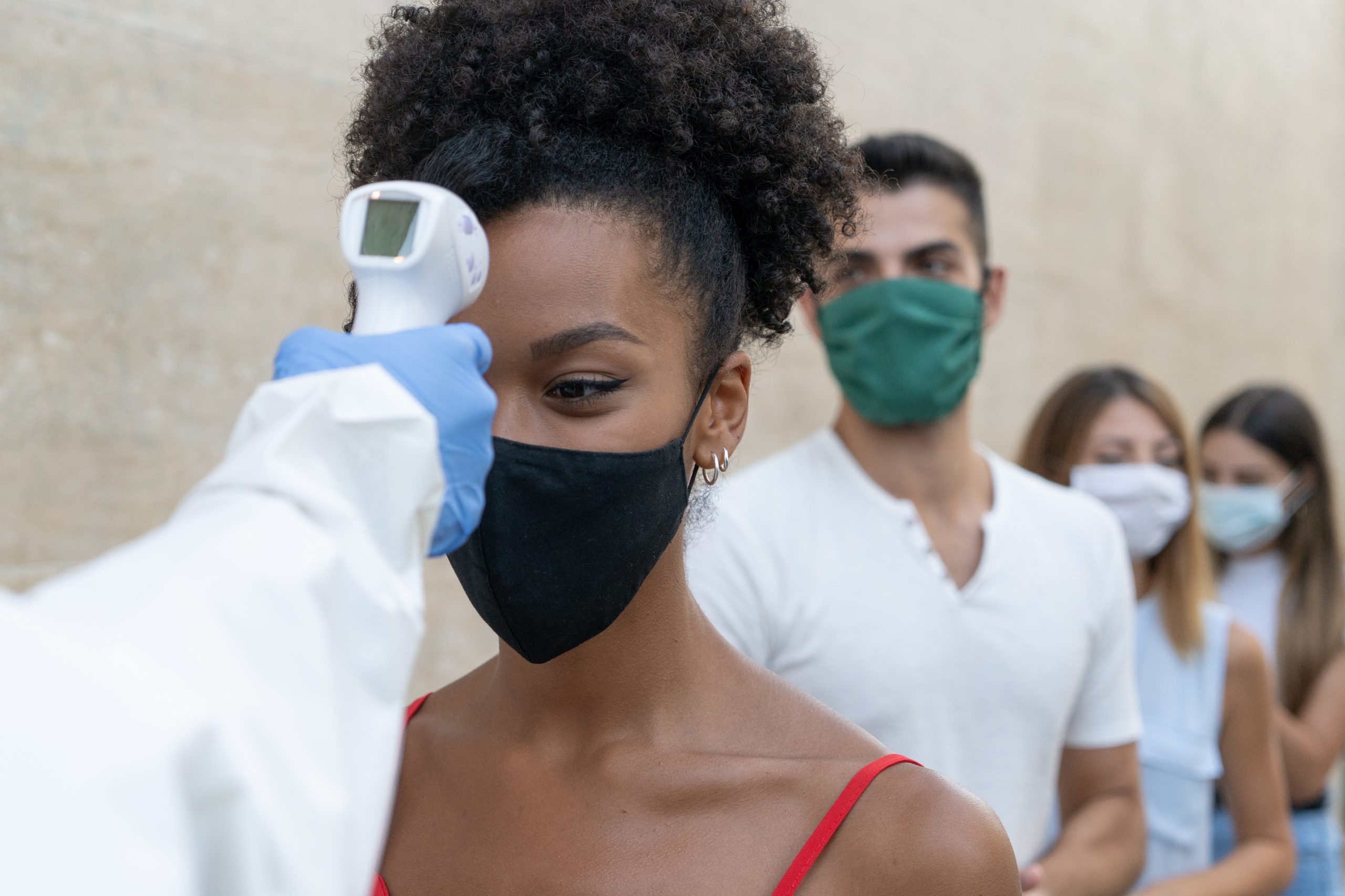
COVID-19 is a highly infectious virus that spreads very easily from person to person. Specifically, it spreads through respiratory droplets when an infected person sneezes, coughs, or talks. This article will cover important information including what is COVID-19, possible ways it can spread, and ways you can protect yourself to reduce exposure.
What is COVID-19?
The Coronavirus, also known as COVID-19, is a respiratory disease caused by SARS-CoV-2. The virus spreads through respiratory droplets from person to person. Specifically, it spreads when an infected person sneezes, coughs, or talks. While symptoms can range from mild to severe, some infected people do not display any symptoms. Adults 65 years old and older are at higher risk for experiencing severe symptoms.
There are many different kinds of coronaviruses. The names come from their appearance, which is covered with spike proteins surrounding them like a crown. "Corona" means "crown." SARS-CoV-2 is a type of Coronavirus.
How Does the Coronavirus Spread in Humans?
Researchers know that the virus spreads through droplets when an infected person sneezes, coughs, or even talks. These droplets are then released into the air and can stay there for extended periods of time, especially in indoor spaces and areas with poor ventilation.
These droplets can then be breathed in by others through their eyes, noses, or mouth. In some cases, the droplets might contaminate the surfaces they land on.
According to the Centers for Disease Control (CDC), COVID-19 is spread in three main ways:
- Breathing in air when close to an infected person who is exhaling small droplets and particles that contain the virus.
- Having these small droplets and particles that contain the virus land on the eyes, nose, or mouth, especially through splashes and sprays like a cough or sneeze.
- Touching eyes, nose, or mouth with hands that have the virus on them.
How Easily Does Coronavirus Spread?
COVID-19 is extremely contagious. Infected individuals can begin to show symptoms within 48 hours or up to 14 days of exposure.
What is Community Spread of COVID-19?
Community spread, according to the CDC, means people have been infected with the virus in an area, including some who are not sure how or where they became infected. Each health department determines community spread differently based on local conditions.
Can I Spread COVID-19 If I Don't Have Symptoms?
Yes, the virus can still be spread even if you are not showing any symptoms. This is known as asymptomatic spread.
How Did the Coronavirus Spread So Quickly?
Chinese health officials alerted the World Health Organization on December 31, 2019, of several cases of pneumonia in Wuhan City, Hubei Province of China. The pneumonia was caused by a virus that did not match any other known virus.
It is believed that the virus originated in bats, where it then most likely was spread to a different type of animal (an intermediate host). Which type of animal that might have been is still unknown. From that animal, it reproduced and eventually began spreading to humans. While initially it was believed the virus began spreading to humans at the Wuhan Market, research conducted by the World Health Organization indicates it might have been circulating before the market.
Coronavirus Symptoms
Symptoms can range from mild to severe and include some or all of the following:
- Cough
- Fever
- Chills
- Fatigue
- Shortness of breath
- Difficulty breathing
- Headache
- Body aches
- Loss of taste or smell
- Sore throat
- Congestion
- Runny nose
- Nausea
- Vomiting
How Can I Protect Myself From COVID-19?
To reduce your risk of getting COVID-19, the CDC recommends taking the following measures:
- Vaccinations are available
- If you are not fully vaccinated and aged 2 or older, wear a mask in indoor public places.
- If you are fully vaccinated, to maximize protection from the Delta variant and prevent possibly spreading it to others, wear a mask indoors in public if you are in an area of substantial or high transmission.
How is COVID-19 Currently Being Monitored?
Hospitals, health departments, and government institutions are regularly monitoring the spread and mutations of the virus by genomic sequencing of select positive COVID-19 samples, according to the suggestions of the CDC. One solution adopted by countries around the world is the Paragon Genomics CleanPlex® SARS-CoV-2 Panel. This panel has been effectively used for a significant number of epidemiology studies to help researchers and epidemiologists better understand the virus.
You may be interested in: The Effects of Coronavirus on Businesses


No comments:
Post a Comment